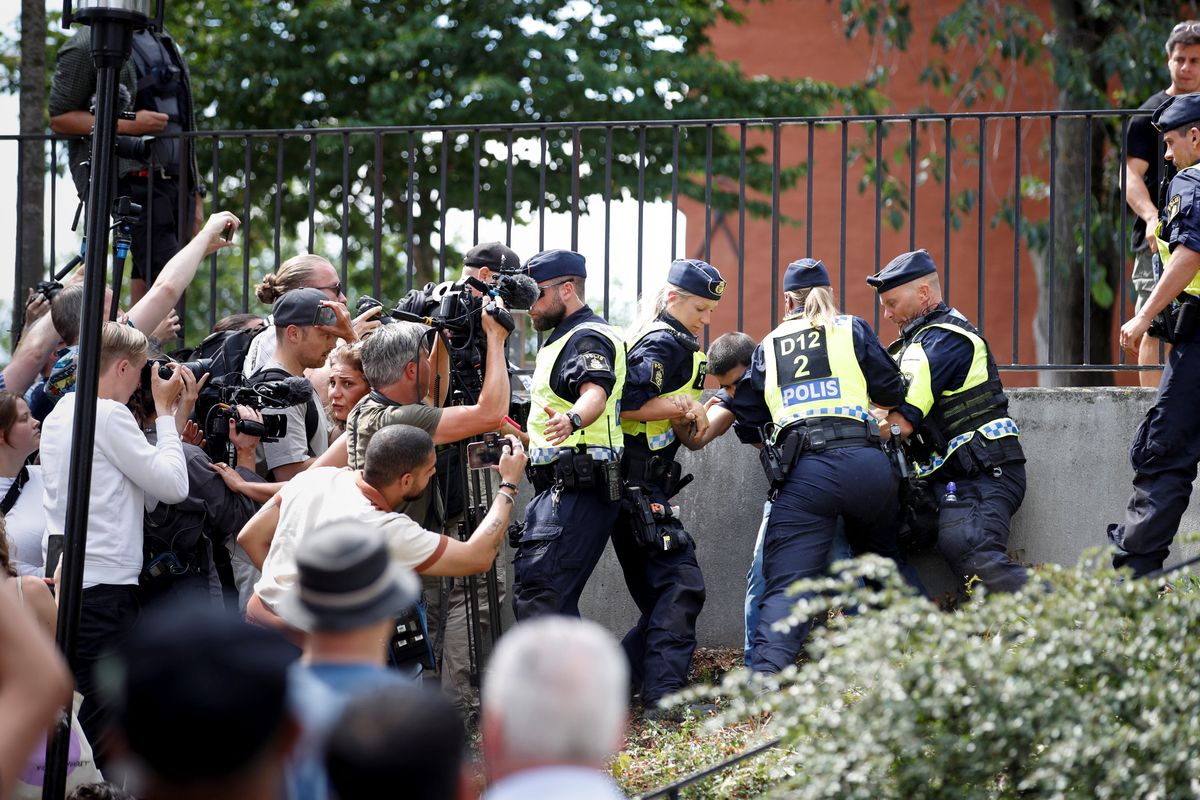On Wednesday, Salwan Momika, an Iraqi refugee living in Sweden, set fire to a copy of the Koran in front of Stockholm’s central mosque as Muslims around the world began celebrating the Eid-al-Adha holiday. Not surprisingly, many Muslim governments immediately condemned Sweden for allowing it to happen and for not arresting the man. Nor is it a surprise that Sweden’s prime minister defended the man’s freedom of expression while calling the provocative act “legal but not appropriate.”
There’s nothing new about the anger generated by these clashes of values. In this case, however, the implications extend well beyond Sweden’s relations with Muslim countries. Sweden remains on the brink of joining NATO in response to Russia’s invasion of Ukraine. Its government hopes that step can be formalized before a NATO summit in July. But the foreign minister of NATO member Turkey, which has the power to block Sweden’s accession, has responded to the event in Stockholm: “It is unacceptable to allow these anti-Islamic actions under the pretext of freedom of expression. To turn a blind eye to such heinous acts is to be complicit in them.”
Some experts have argued that Turkey’s President Recep Tayyip Erdogan would allow Sweden to join once he had secured victory in last month’s election. That hurdle has been cleared. There may be other inducements that can persuade Erdogan to greenlight Sweden’s bid. But a public burning of the Koran in the middle of Stockholm won’t help.






